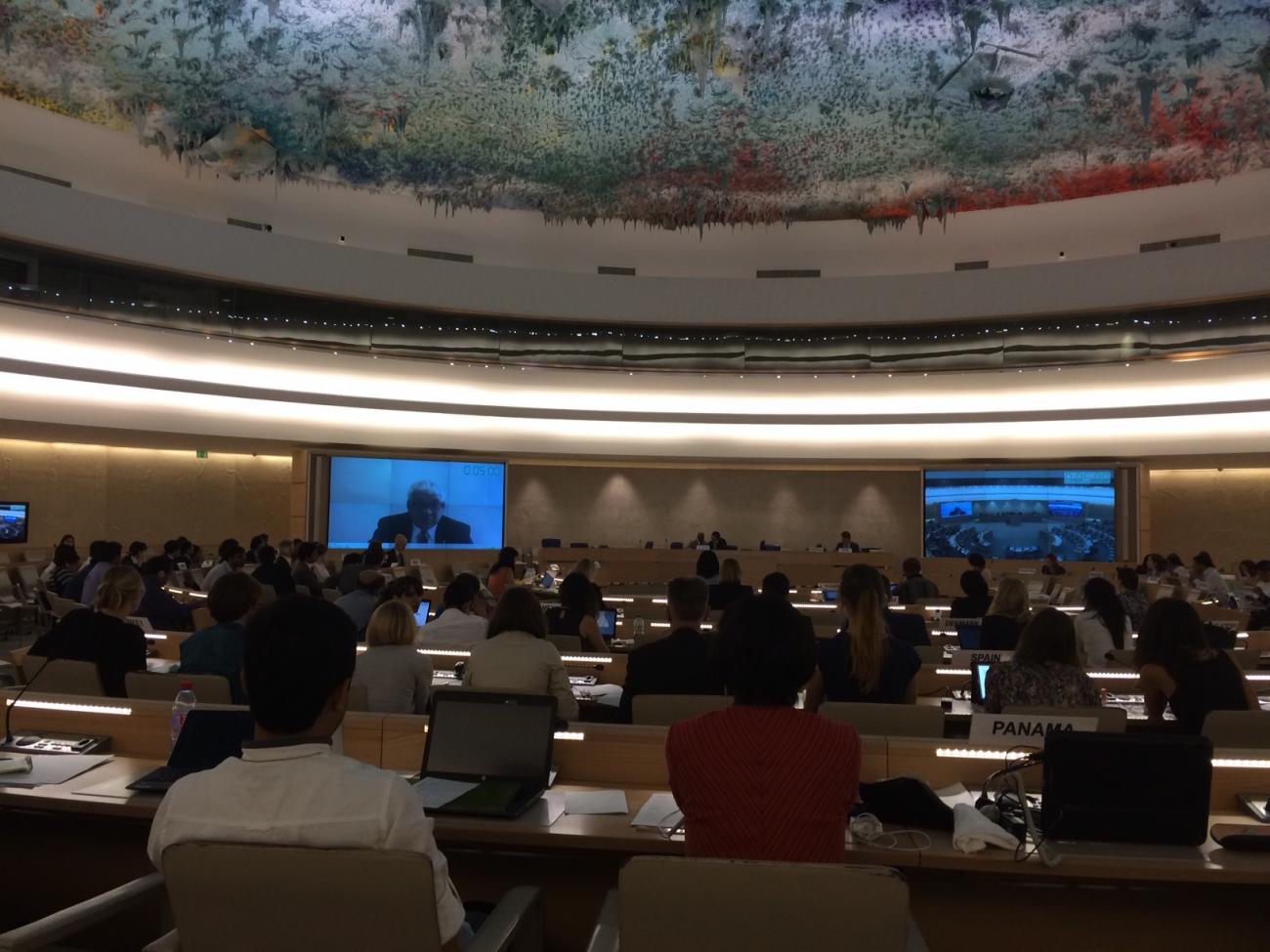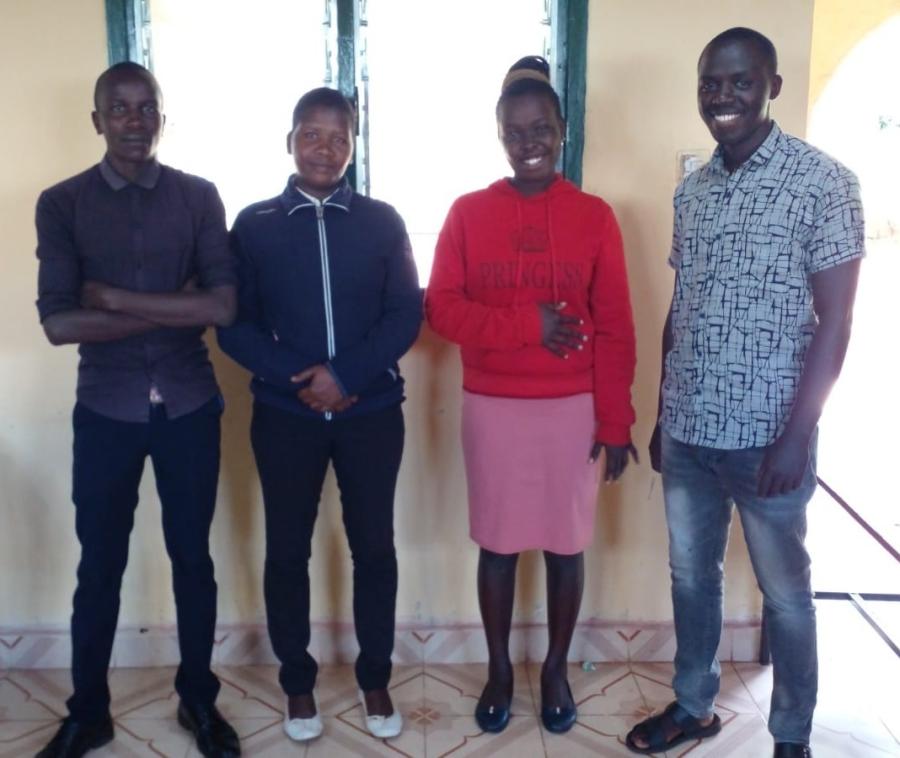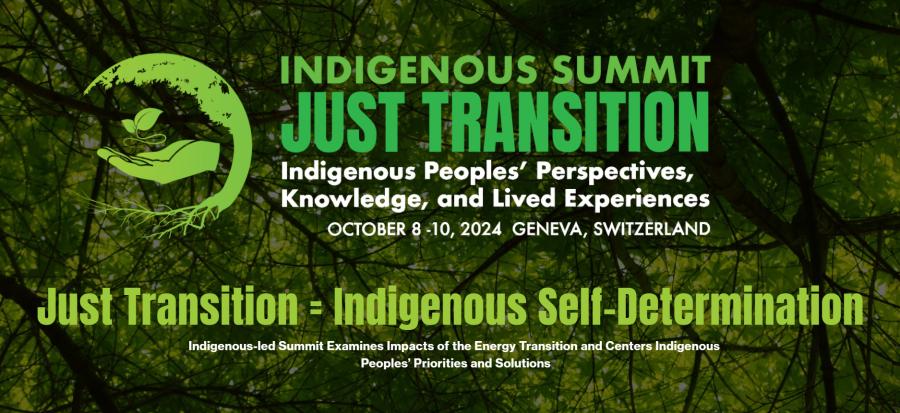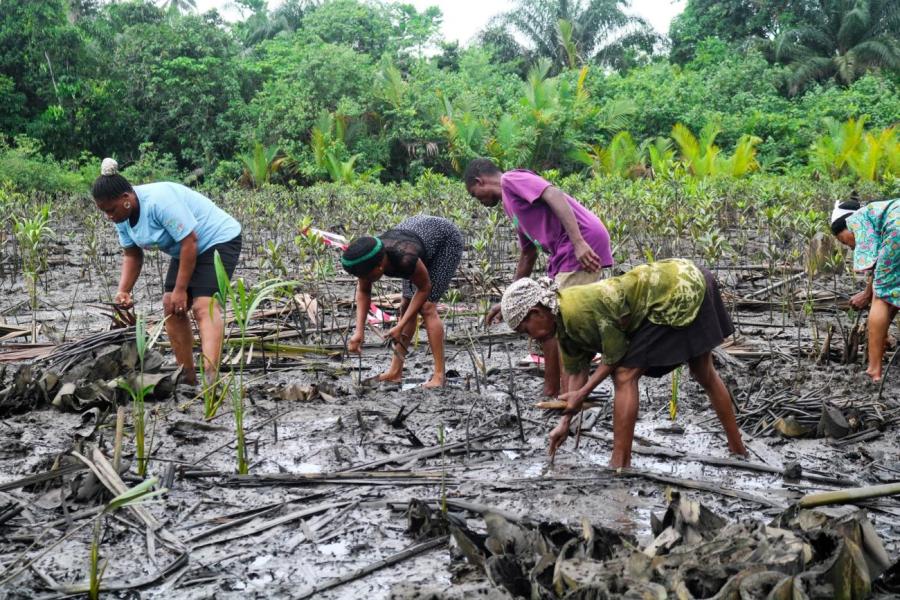
The Ninth Session of the UN Expert Mechanism on the Rights of Indigenous Peoples took place from the 11th to 15th of July 2016 at the Palais des Nations in Geneva, Switzerland. At the end of this session the Expert Mechanism on the Rights of Indigenous Peoples released a study which focused on the right to health for Indigenous Peoples. The study analyzed the right to health in “spiritual, emotional, cultural and social dimensions, in addition to physical health” with a focus on Indigenous children and youth.
Cultural Survival Executive Director Suzanne Benally (Dinè and Santa Clara Tewa) attended the session and delivered an intervention on July 12, 2016. In her intervention, Benally declared that “the right to health in Indigenous communities is rarely understood or addressed holistically. Social services and health interventions are isolated from a holistic framework, underfunded, disregarded, or non-existent. The failure of states to understand the relationship between Indigenous peoples well-being and health and their spiritual and cultural ties to their lands and territories continues a long history of cultural genocide.” During the session, members of the Expert Mechanism examined the ways in which Indigenous communities are currently being denied a right to health, and how States and governments can take steps towards implementing measures for Indigenous Peoples to have increased access to healthcare in all capacities.
The study first establishes a legal framework in which the right to health is guaranteed to Indigenous communities across the globe, through treaties such as the Universal Declaration of Human Rights, the United Nations Declaration on the Rights of Indigenous Peoples, and the International Covenant on Economic, Social, and Cultural Rights. The right to health forms an integral part of these treaties, and as the Special Rapporteur on the right to health has explained, this should push the states to partner with Indigenous Peoples in order to ameliorate the well-being of Indigenous communities.
Availability, accessibility, acceptability, and quantity of right to health are provisions that the Expert Mechanism considers essential to state obligations of fulfilling Indigenous Peoples’ right to health. Healthcare for Indigenous communities is often geographically inaccessible or of poor quality; many individuals also experience racial discrimination and marginalization when seeking access to healthcare. The Expert Mechanism has also stated that governments have a duty delineated by international laws and treaties to respect, protect, and fulfill all Indigenous Communities’ right to health. States should work to change discriminatory and harmful practices surrounding Indigenous communities, and promote the inclusion of Indigenous individuals in the leadership and decision-making process concerning the health of their communities.
The Expert Mechanism then brings attention to the poorer standard of health for Indigenous children, stating that Indigenous women and children are more vulnerable to human rights violations, have higher infant mortality rates, and experience frequent discrimination when forced to move to more urban areas looking for higher quality education and employment. Leaving their traditional homes behind, many Indigenous individuals have a higher risk of experiencing depression and substance abuse, as well as other health risks that develop without the existence of a support system.
Regarding education, illiteracy rates among Indigenous children are significantly higher than among non Indigenous children. In addition, the Expert Mechanism declares that dropout rates are alarming; in Peru, Indigenous girls aged 12-16 have school dropout rates of 89% (A/HRC/29/40/Add.2., para. 68). The Expert Mechanism urges governments to increase investment in education for Indigenous communities. Suicide rates among Indigenous youths are also startlingly high. The Expert Mechanism advocates for the implementation of suicide prevention strategies in schools and communities to reduce feelings of depression and hopelessness among Indigenous youth. For Indigenous women, access to sexual and reproductive health services is extremely limited and maternal mortality rates are excessively high, as are the rates at which Indigenous women experience sexual and domestic violence. The Expert Mechanism suggests that many of these problems faced by Indigenous woman can be ameliorated through states partnering with Indigenous communities, and implementing programs such as maternal wards, midwife training, the eradication of laws that prevent access to contraceptives, in addition to offering legal remedies to domestic and sexual violence. The Expert Mechanism has also urged states to address discriminatory practices which Indigenous persons with disabilities experience at a higher rate than the average population.
A variety of challenges exist for Indigenous Peoples accessing their right to health, such as communicable and noncommunicable diseases. Infectious diseases, like HIV/AIDS, malaria, and tuberculosis exist at high levels in Indigenous populations. Tropical diseases such as trachoma, yaws, and leprosy, are also existent at disproportionately high rates in Indigenous communities. It has also been estimated that more than 50% of Indigenous adults over age 35 suffer from Type II diabetes worldwide (ST/ESA/328). The Expert Mechanism has suggested that states create a mass treatment program for these diseases, specifically among Indigenous communities.
Not only is physical health concerning in Indigenous communities, but poor environmental health is evident as well. For example, climate change has changed the hunting and fishing practices of the Inuit People in Canada, leading Indigenous communities to rely on less healthy and more mainstream food options. Transnational corporations also contribute to environmental damage, often contaminating water sources, food, and causing communities to be displaced from their traditional lands. The Expert Mechanism advocates for companies to cooperate with Indigenous people and the State in order to reduce the adverse effects of their practices.
The Expert Mechanism on the Rights of Indigenous Peoples ultimately urges States to provide Indigenous communities with the full right to health by ratifying ILO Convention No. 169, in addition to creating plans and programs that promote mental, spiritual, physical, and emotional health. The study also advocates for the elimination of laws that may prevent Indigenous individuals from accessing this right to health, such as bans on contraceptives, and to work with Indigenous communities to prevent environmental damage from outside companies or entities. The Expert Mechanism has also suggested that Indigenous Peoples themselves bolster efforts to promote health rights and representation of Indigenous communities, and recommended that international organizations such as the World Health Organization, the World Bank, and the United Nations should research treatments for physical and mental health, partnering with Indigenous Peoples to promote best practices for health in Indigenous communities.
The final draft of the study will soon be available.



